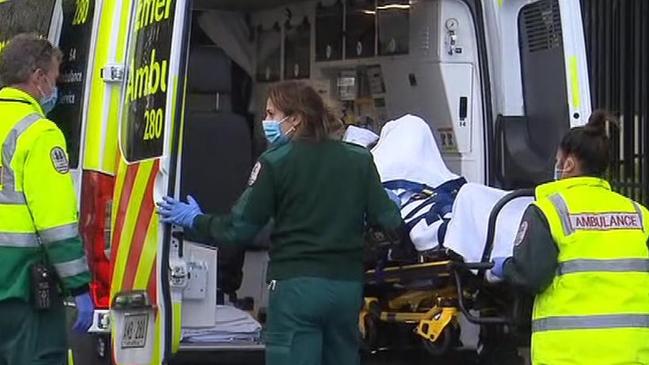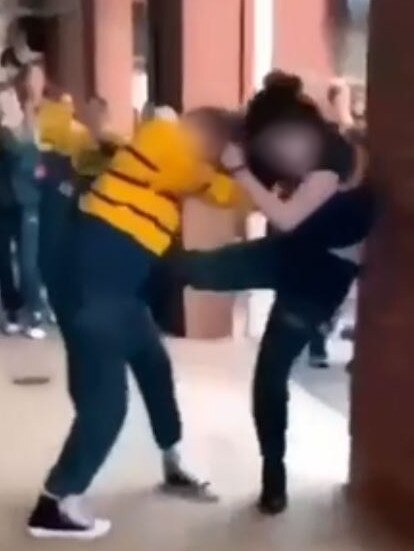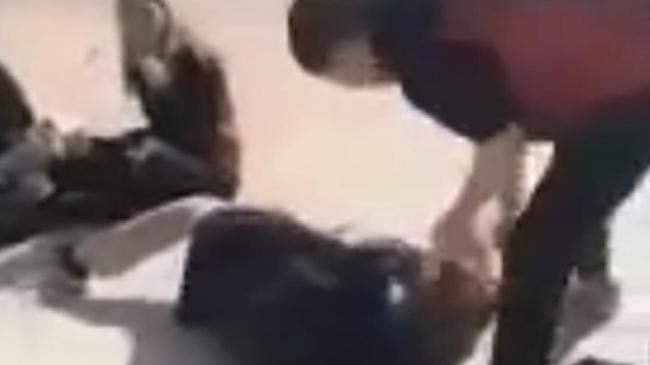Huge rise in SA school violence as cops called 1000 times a year
SA’s public schools are struggling under a massive spike in violent and anti-social incidents, with data laying bare just how often teachers are forced to call in the cops.
Education
Don't miss out on the headlines from Education. Followed categories will be added to My News.
South Australian state schools are calling in police about 1000 times a year to help deal with serious, violent and anti-social incidents in the public education system.
Latest Education Department data shows almost 9400 “critical incidents” were recorded at 900 sites, including family-day care, kindergarten and primary and high schools in 2021.
This was an increase of 20 per cent in 12 months and almost double in eight years.
A spike was recorded in almost all categories covering violence, weapons, drugs, alcohol, other substances such as vaping, injuries as well as sexual or verbal abuse.
Official figures show police attended campuses 996 times in 2021 – an average of almost three a day – triggering dozens of arrests. Police call-outs were similar in the previous two years. This year’s data was unavailable.
Recent high-profile incidents have involved bullying and fighting at Golden Grove High and Whyalla secondary schools, but officials say problems are sector wide. Education Minister Blair Boyer on Monday said vaping and student violence – some of which had been filmed and shared to social media – were some of his biggest challenges.
But he said authorities were urgently working to solve the problems.
“Critical incidents in schools are always of concern and taken seriously,” he said.

Mr Boyer will host crisis talks next month with Commissioner for Children and Young People Helen Connolly, peak educational bodies, researchers, school leaders, teachers and students.

Mr Boyer said the “ministerial roundtable on violence in schools” would ensure “we’re applying every single resource at our disposal” to help SA’s 177,000 public students.
A critical incident is a “significant, unusual or threatening event” that can be disruptive, contentious, create significant danger and risk, or attract media scrutiny.
More than 170 students, teachers or school workers have been arrested in the past five years, data shows. Since 2018, when “national security” cases in schools were first recorded, 25 people have been flagged as at risk of religious or political radicalisation.
Incidents mostly relate to student behaviour but records also include adult incidents.
This may involve parents verbally abusing teachers and principals, intruders on campus or students reporting family sexual abuse crimes in any setting, including recent or historic allegations.
Eighty-six deaths were recorded last year, but this can also include the loss of former teachers or students which causes trauma for school community.
Authorities say reporting to the department triggers various school support services.
Police attend for serious injuries, self-harm, violence or to hunt an intruder. Officers also often use schools to speak to students in a “safe place”.
Having visited most schools in seven months, Mr Boyer said the government will spend $50m on mental health and on Monday launched a strategy to stop students vaping.
He said “strong action” to reduce school violence included hiring security guards, alongside behavioural specialists and parent liaison officers.

Mobile phones are banned in high schools next year.
Opposition spokesman John Gardner, who was education minister from 2018 to March 2022, said the figures underlined an “elevated level of anxiety and complexity” from the pandemic.
He said challenges now involved disruptions after restrictions eased and cost-of-living pressures “squeezing many families tightly”.
“Whether it is Covid anxiety, financial stress, or anything else, the impacts of difficult issues in the broader community are invariably also felt within schools,” he said.
A police spokeswoman said officers had a “strong relationship” with education authorities to fight “criminal and anti-social behaviour in schools”.
Australian Education Union SA president Andrew Gohl said teaching complexity “continues to be a feature of their work”.





